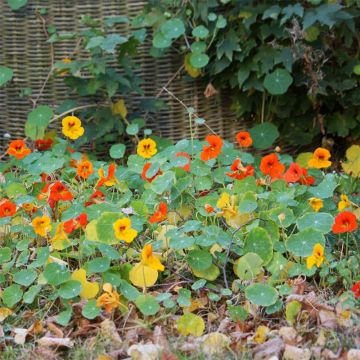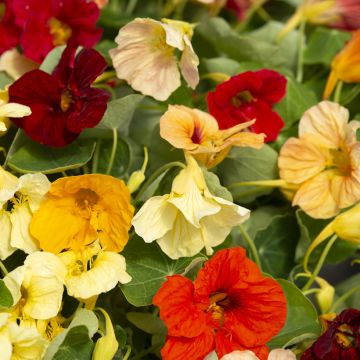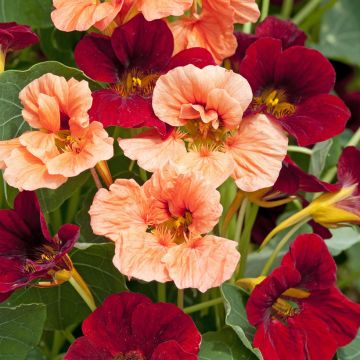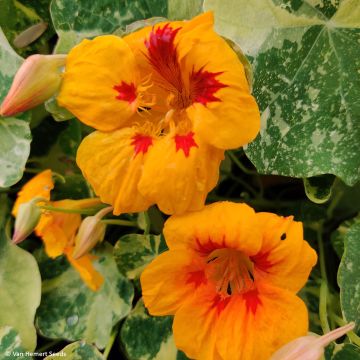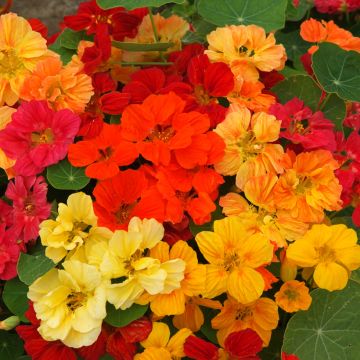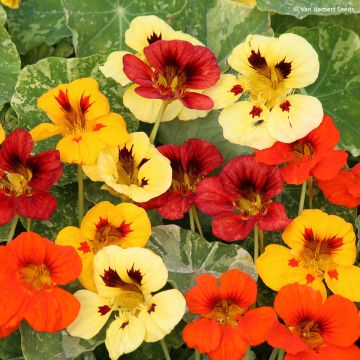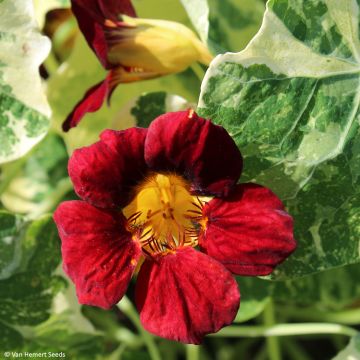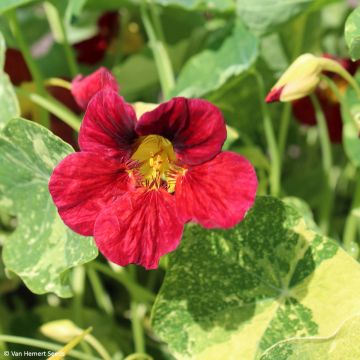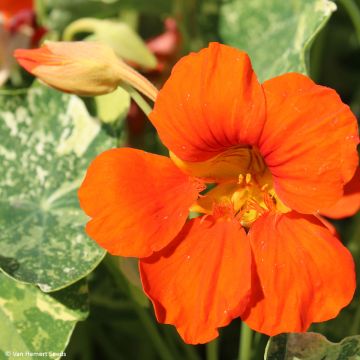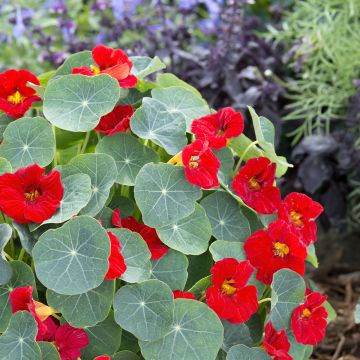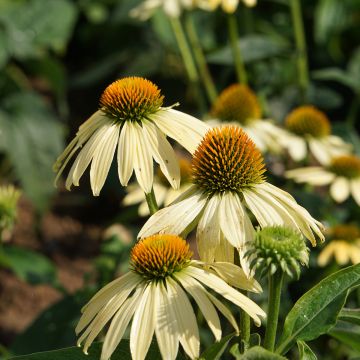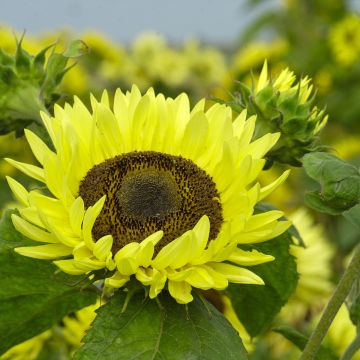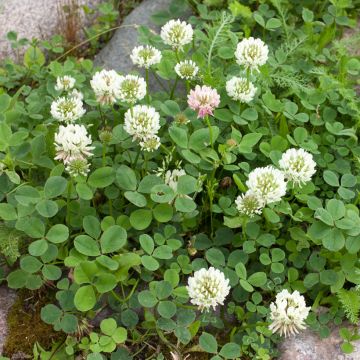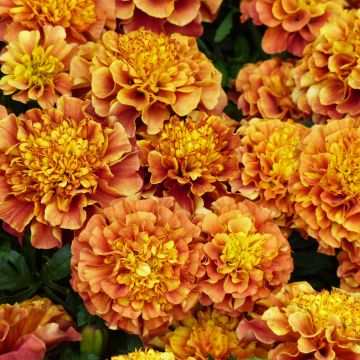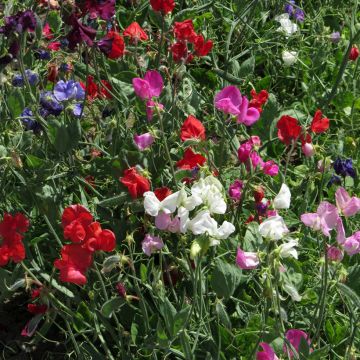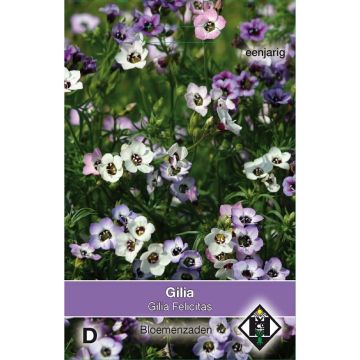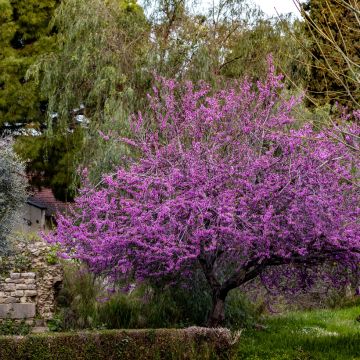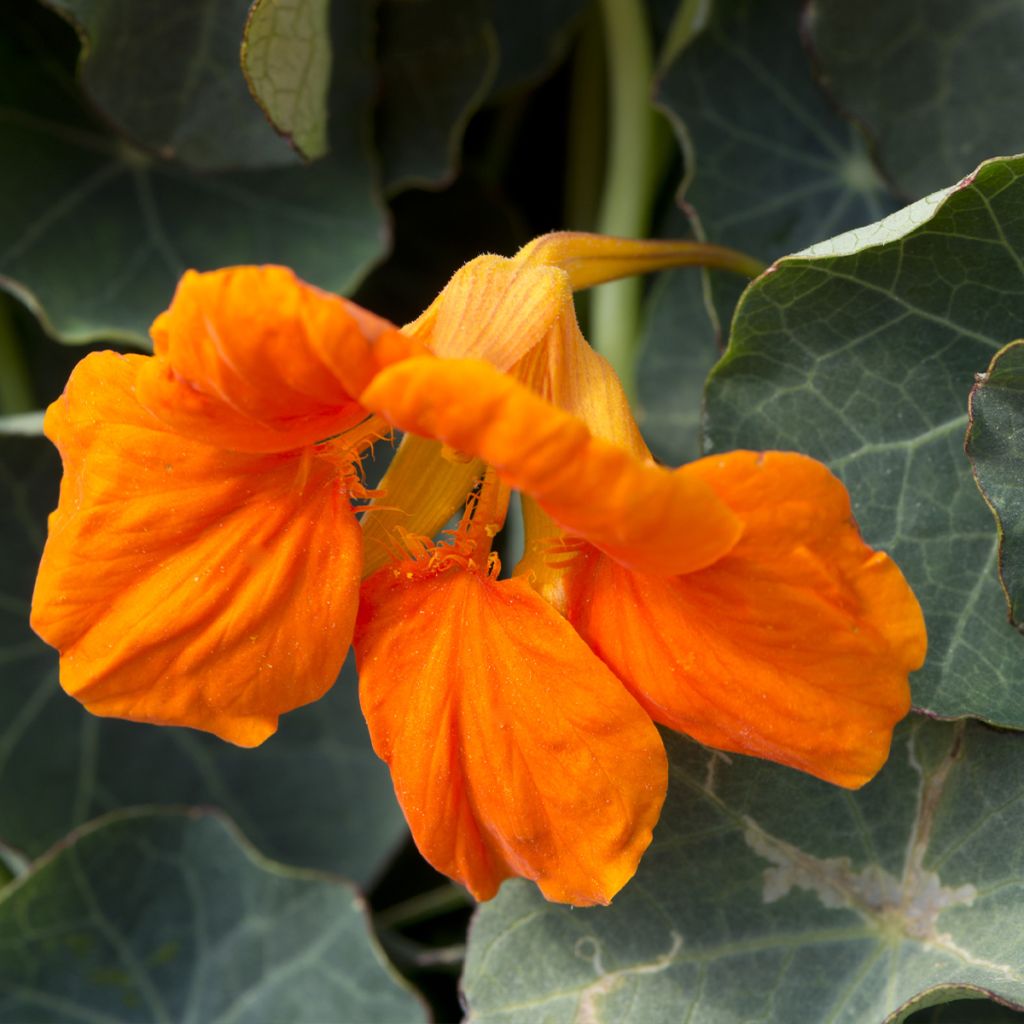

Tropaeolum Baby Orange - Dwarf Nasturtium Seeds
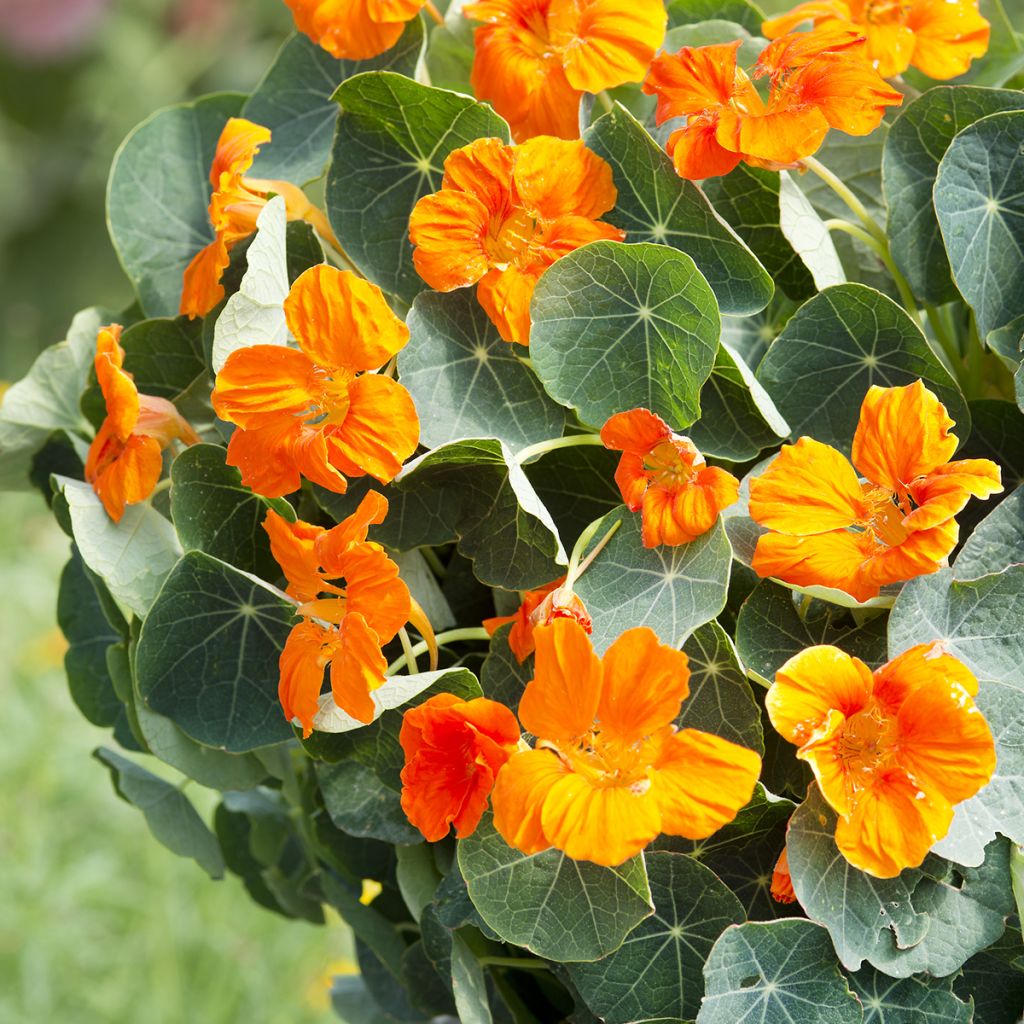

Tropaeolum Baby Orange - Dwarf Nasturtium Seeds
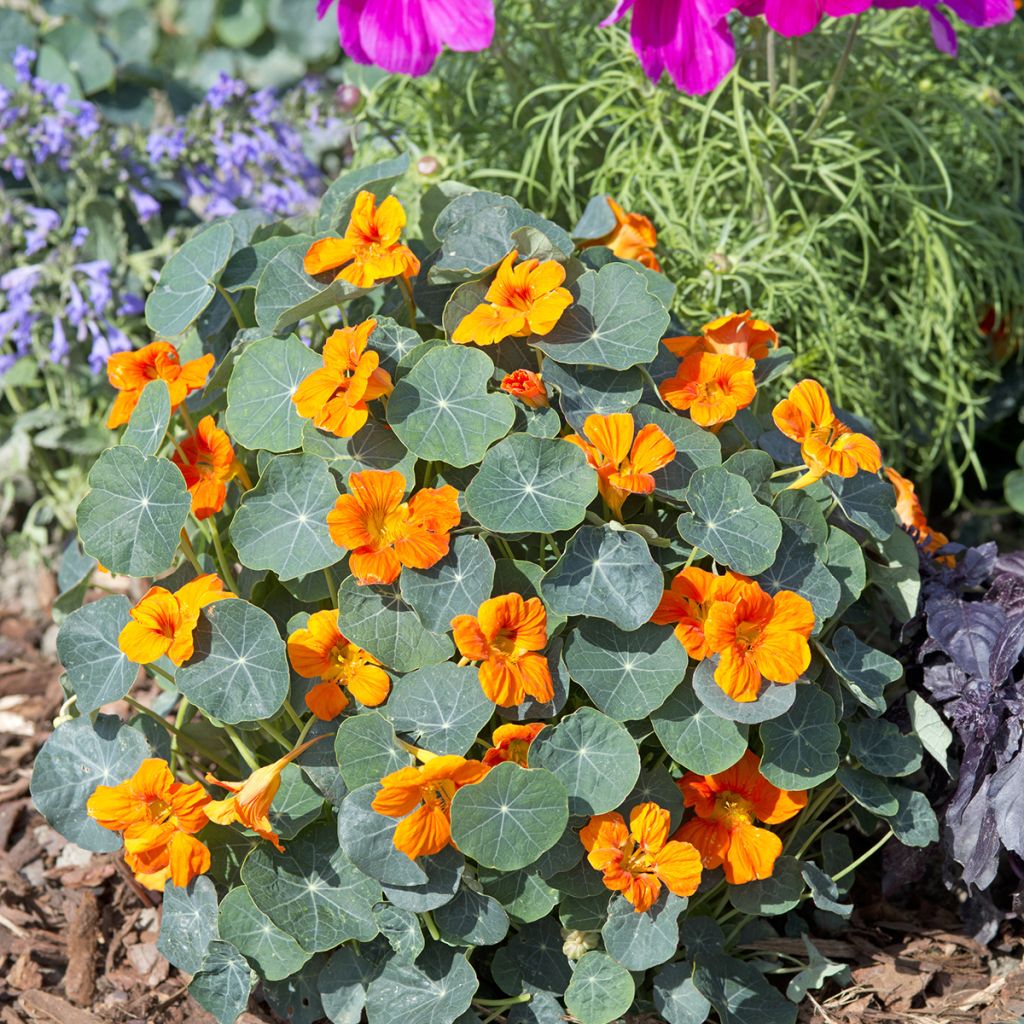

Tropaeolum Baby Orange - Dwarf Nasturtium Seeds
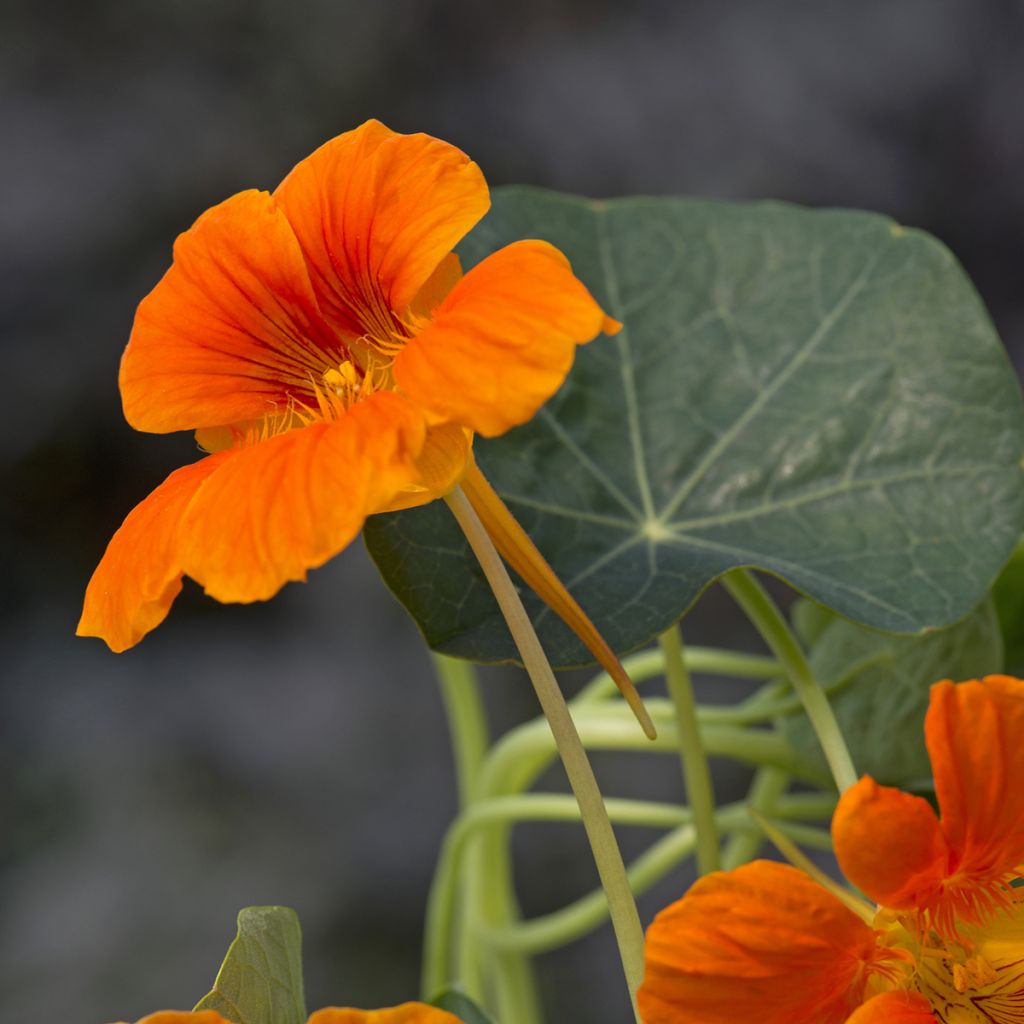

Tropaeolum Baby Orange - Dwarf Nasturtium Seeds
Tropaeolum Baby Orange - Dwarf Nasturtium Seeds
Tropaeolum minus Baby Orange
Garden Nasturtium, Dwarf Nasturtium
I haven't sown them yet.
Berthe , 14/10/2025
Special offer!
Receive a €20 voucher for any order over €90 (excluding delivery costs, credit notes, and plastic-free options)!
1- Add your favorite plants to your cart.
2- Once you have reached €90, confirm your order (you can even choose the delivery date!).
3- As soon as your order is shipped, you will receive an email containing your voucher code, valid for 3 months (90 days).
Your voucher is unique and can only be used once, for any order with a minimum value of €20, excluding delivery costs.
Can be combined with other current offers, non-divisible and non-refundable.
Home or relay delivery (depending on size and destination)
Schedule delivery date,
and select date in basket
This plant carries a 6 months recovery warranty
More information
We guarantee the quality of our plants for a full growing cycle, and will replace at our expense any plant that fails to recover under normal climatic and planting conditions.

Would this plant suit my garden?
Set up your Plantfit profile →
Description
The Tropaeolum minus 'Baby Orange' is a variety of dwarf nasturtium ideal for pots, hanging baskets, and flower borders. With its dense and neat cushion, this charming little plant has bright orange flowers on dark green foliage. It maintains a tidy and upright appearance throughout the season. This variety was awarded at Fleuroselect in 2020 for its innovative qualities. Not very cold-resistant, this adorable nasturtium is grown as an annual in sunny locations and in moist soil.
The dwarf nasturtium, or Tropaeolum minus, is a frost-tender perennial plant native to the mountainous regions of Ecuador and Peru. It belongs to the Tropaeolaceae family, just like its close relative, the larger nasturtium Tropaeolum majus, also known as garden nasturtium. Many varieties of nasturtiums have been developed, including 'Baby Orange', a recently selected cultivar. In a single season, this plant forms a small bushy clump measuring 25 to 30 cm in height and 30 to 35 cm in width. The leaves of the nasturtium are composed of small round, peltate leaves with radiating veins, in a dark glaucous green color. It flowers from June to September-October, offering numerous small tubular flowers with 5 intense orange petals and white backs, sometimes slightly speckled or edged with white, and equipped with a spur. In our climates, this plant is mainly pollinated by bumblebees. After flowering, fruits form, containing seeds slightly smaller than peas, which are easy to sow.
Combine 'Baby Orange' nasturtium with Helenium, lavender, and perennial geraniums. A Blue Fescue Grass harmonizes with the color of its foliage. In the vegetable garden and orchard, it helps eliminate harmful insects. Its edible leaves and flowers can be added raw to salads, sauces, and mayonnaise. They have a pungent and aromatic flavor reminiscent of watercress. The flower buds and young fruits can also be pickled, providing an alternative to capers.
The nasturtium gets its vernacular name from the spur that its flowers possess, resembling the hood of a Capuchin friar's habit. It is a medicinal and aromatic plant.
Report an error about the product description
Tropaeolum Baby Orange - Dwarf Nasturtium Seeds in pictures




Flowering
Foliage
Plant habit
Botanical data
Tropaeolum
minus
Baby Orange
Tropaeolaceae
Garden Nasturtium, Dwarf Nasturtium
Cultivar or hybrid
Other Nasturtium seeds
View all →Planting and care
Sow Nasturtiums directly outdoors, in their final location, from March to May. Choose a sunny spot with well-drained soil that has been thoroughly loosened beforehand. Sow nasturtium seeds at a depth of 2 cm in rows spaced 30 cm apart, covering the seeds with a layer of soil equal to their size. Water the soil regularly, especially during dry periods. Germination usually takes 7 to 12 days.
When the young plants are large enough to handle, thin them out to leave one plant every 30 cm. You can also sow Nasturtiums indoors at 15-25 °C. When the nasturtium plants are large enough to handle, transplant them and grow them in cooler conditions until they reach a sufficient size to be planted outdoors. This should be done as soon as the risk of frost has passed.
Nasturtiums thrive in cool, well-drained soil in full sun or partial shade. Aphids and cabbage white butterflies often attack them. Spraying a solution composed of traditional black soap and water (4 to 5 cc / 1 l of water) will help limit the damage in case of a massive aphid infestation.
Sowing period
Intended location
-
, onOrder confirmed
Reply from on Promesse de fleurs
Similar products
Haven't found what you were looking for?
Hardiness is the lowest winter temperature a plant can endure without suffering serious damage or even dying. However, hardiness is affected by location (a sheltered area, such as a patio), protection (winter cover) and soil type (hardiness is improved by well-drained soil).

Photo Sharing Terms & Conditions
In order to encourage gardeners to interact and share their experiences, Promesse de fleurs offers various media enabling content to be uploaded onto its Site - in particular via the ‘Photo sharing’ module.
The User agrees to refrain from:
- Posting any content that is illegal, prejudicial, insulting, racist, inciteful to hatred, revisionist, contrary to public decency, that infringes on privacy or on the privacy rights of third parties, in particular the publicity rights of persons and goods, intellectual property rights, or the right to privacy.
- Submitting content on behalf of a third party;
- Impersonate the identity of a third party and/or publish any personal information about a third party;
In general, the User undertakes to refrain from any unethical behaviour.
All Content (in particular text, comments, files, images, photos, videos, creative works, etc.), which may be subject to property or intellectual property rights, image or other private rights, shall remain the property of the User, subject to the limited rights granted by the terms of the licence granted by Promesse de fleurs as stated below. Users are at liberty to publish or not to publish such Content on the Site, notably via the ‘Photo Sharing’ facility, and accept that this Content shall be made public and freely accessible, notably on the Internet.
Users further acknowledge, undertake to have ,and guarantee that they hold all necessary rights and permissions to publish such material on the Site, in particular with regard to the legislation in force pertaining to any privacy, property, intellectual property, image, or contractual rights, or rights of any other nature. By publishing such Content on the Site, Users acknowledge accepting full liability as publishers of the Content within the meaning of the law, and grant Promesse de fleurs, free of charge, an inclusive, worldwide licence for the said Content for the entire duration of its publication, including all reproduction, representation, up/downloading, displaying, performing, transmission, and storage rights.
Users also grant permission for their name to be linked to the Content and accept that this link may not always be made available.
By engaging in posting material, Users consent to their Content becoming automatically accessible on the Internet, in particular on other sites and/or blogs and/or web pages of the Promesse de fleurs site, including in particular social pages and the Promesse de fleurs catalogue.
Users may secure the removal of entrusted content free of charge by issuing a simple request via our contact form.
The flowering period indicated on our website applies to countries and regions located in USDA zone 8 (France, the United Kingdom, Ireland, the Netherlands, etc.)
It will vary according to where you live:
- In zones 9 to 10 (Italy, Spain, Greece, etc.), flowering will occur about 2 to 4 weeks earlier.
- In zones 6 to 7 (Germany, Poland, Slovenia, and lower mountainous regions), flowering will be delayed by 2 to 3 weeks.
- In zone 5 (Central Europe, Scandinavia), blooming will be delayed by 3 to 5 weeks.
In temperate climates, pruning of spring-flowering shrubs (forsythia, spireas, etc.) should be done just after flowering.
Pruning of summer-flowering shrubs (Indian Lilac, Perovskia, etc.) can be done in winter or spring.
In cold regions as well as with frost-sensitive plants, avoid pruning too early when severe frosts may still occur.
The planting period indicated on our website applies to countries and regions located in USDA zone 8 (France, United Kingdom, Ireland, Netherlands).
It will vary according to where you live:
- In Mediterranean zones (Marseille, Madrid, Milan, etc.), autumn and winter are the best planting periods.
- In continental zones (Strasbourg, Munich, Vienna, etc.), delay planting by 2 to 3 weeks in spring and bring it forward by 2 to 4 weeks in autumn.
- In mountainous regions (the Alps, Pyrenees, Carpathians, etc.), it is best to plant in late spring (May-June) or late summer (August-September).
The harvesting period indicated on our website applies to countries and regions in USDA zone 8 (France, England, Ireland, the Netherlands).
In colder areas (Scandinavia, Poland, Austria...) fruit and vegetable harvests are likely to be delayed by 3-4 weeks.
In warmer areas (Italy, Spain, Greece, etc.), harvesting will probably take place earlier, depending on weather conditions.
The sowing periods indicated on our website apply to countries and regions within USDA Zone 8 (France, UK, Ireland, Netherlands).
In colder areas (Scandinavia, Poland, Austria...), delay any outdoor sowing by 3-4 weeks, or sow under glass.
In warmer climes (Italy, Spain, Greece, etc.), bring outdoor sowing forward by a few weeks.






























